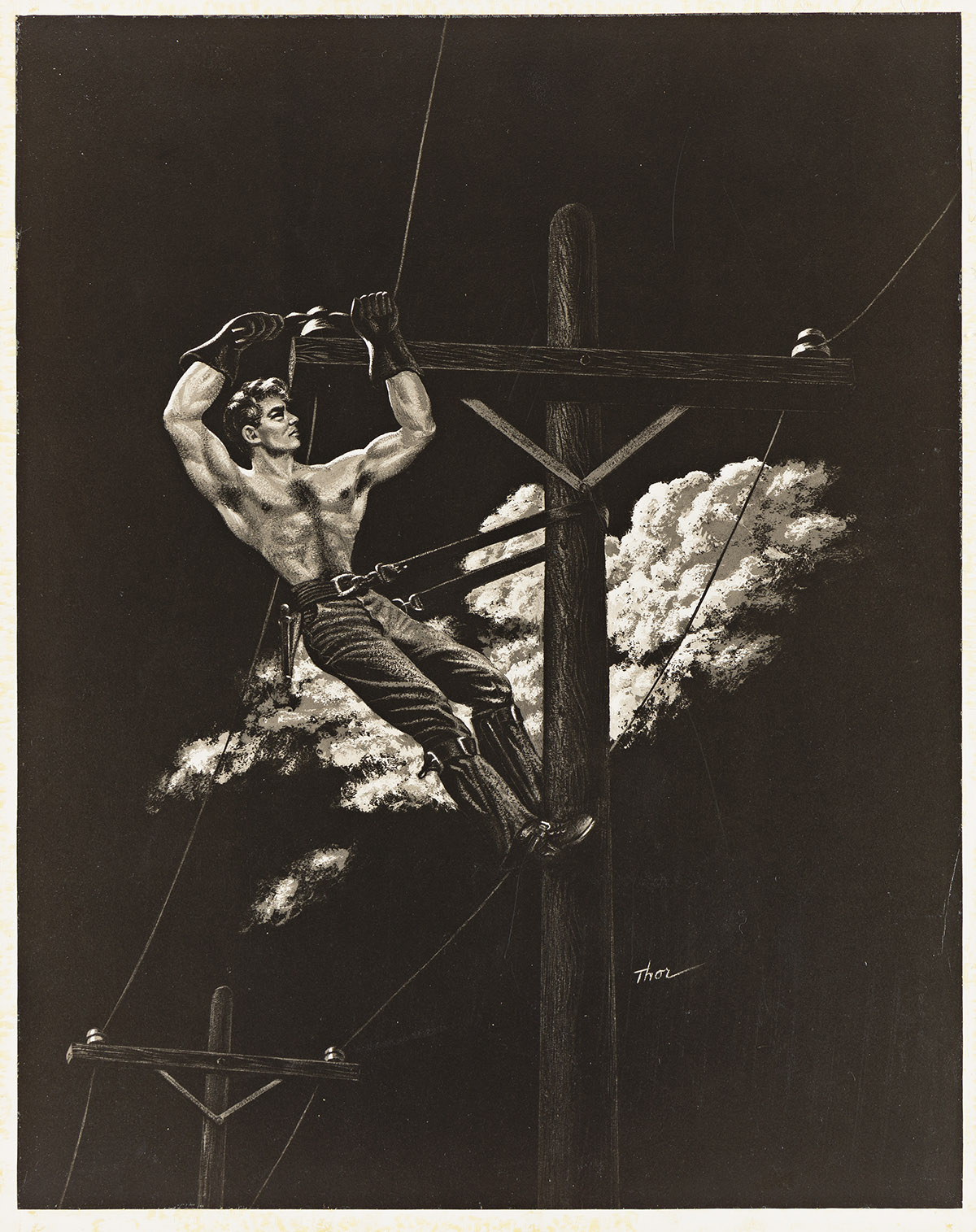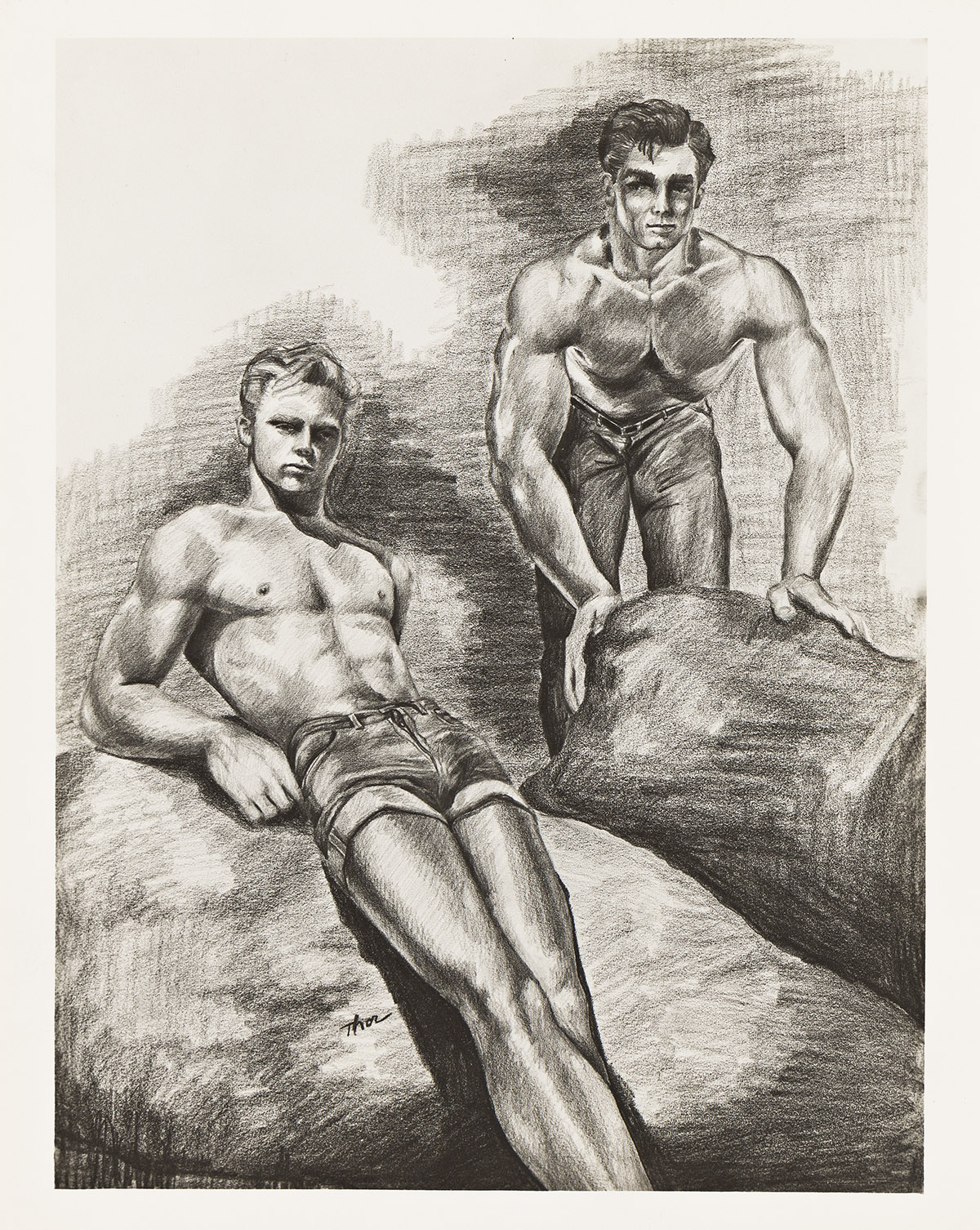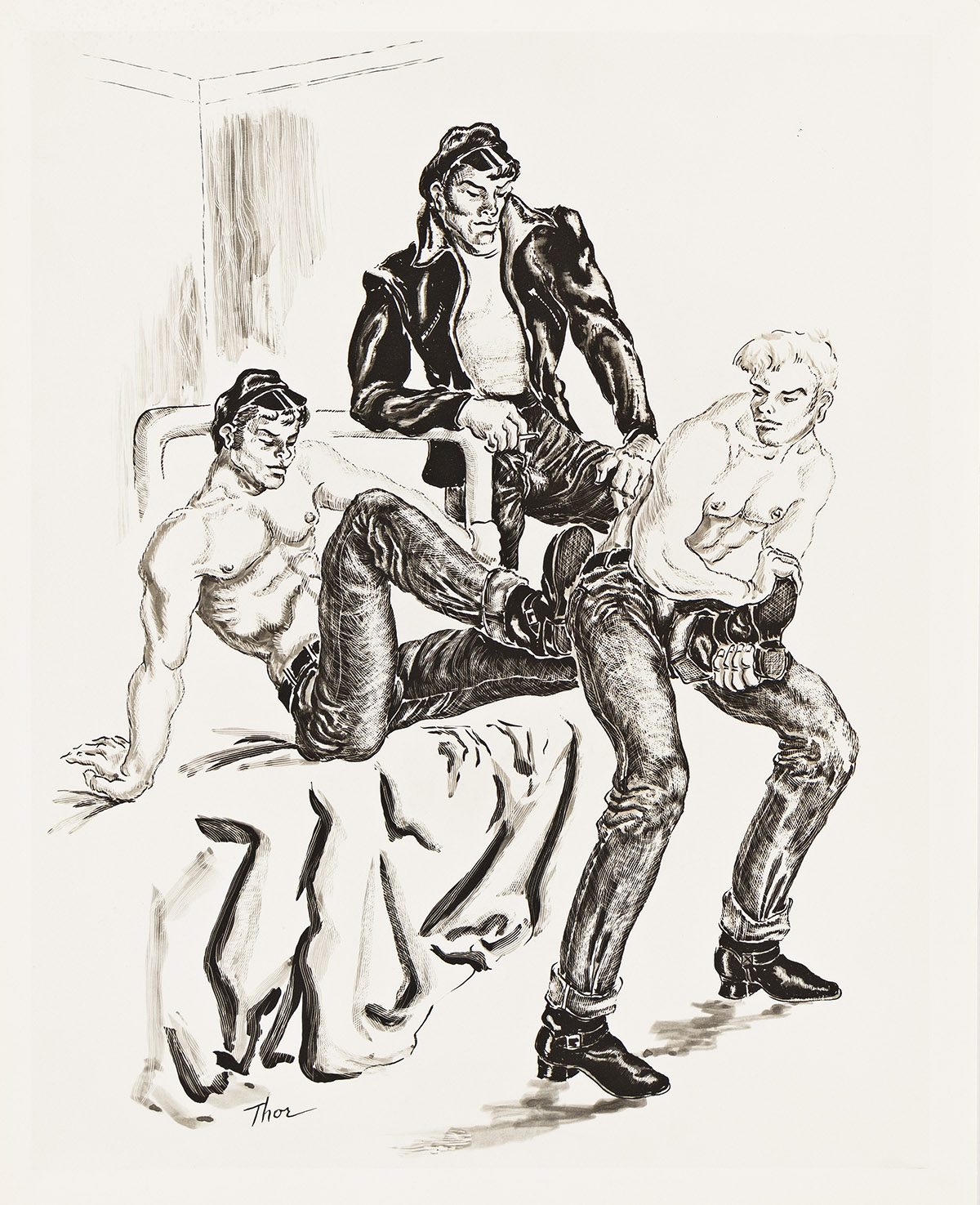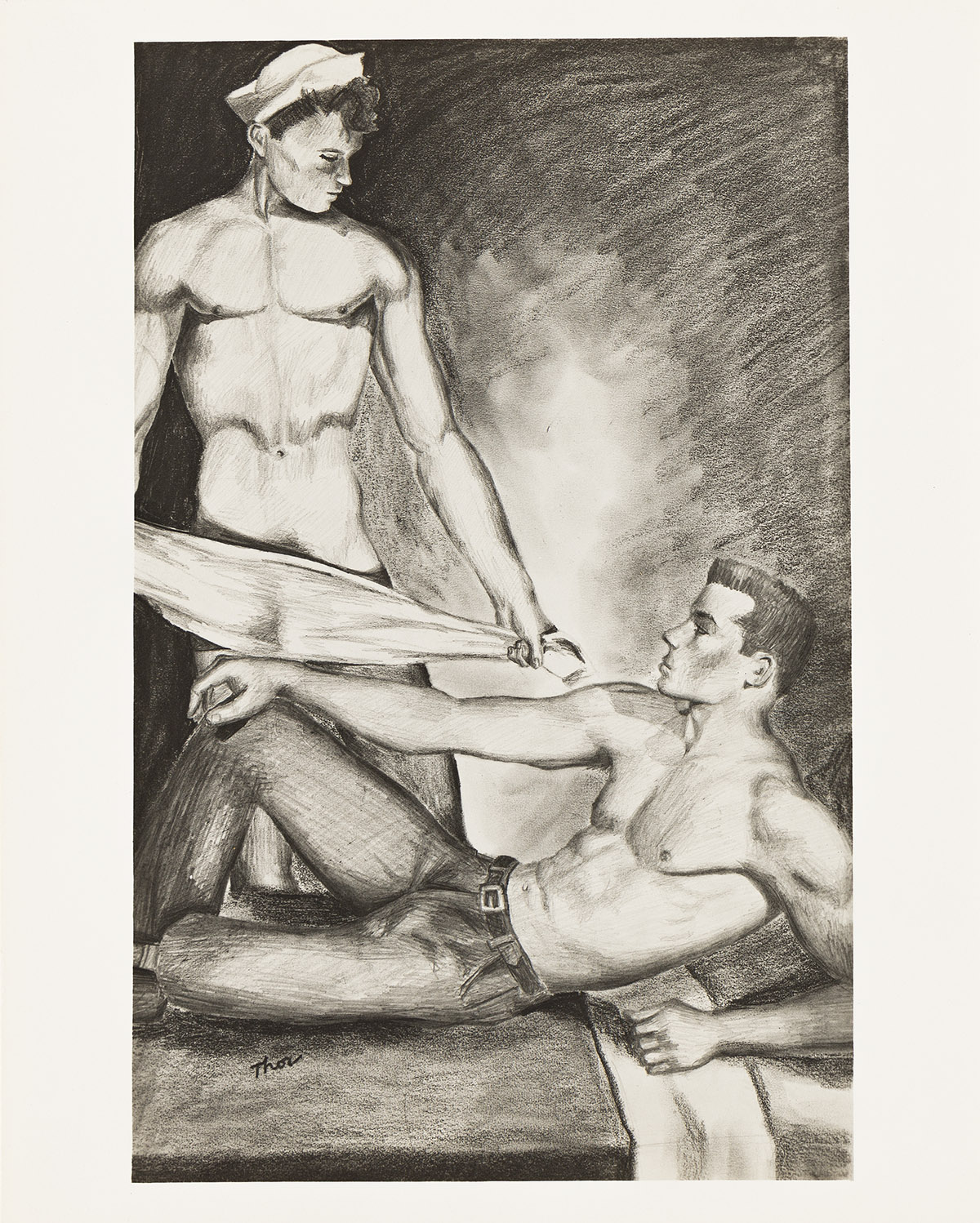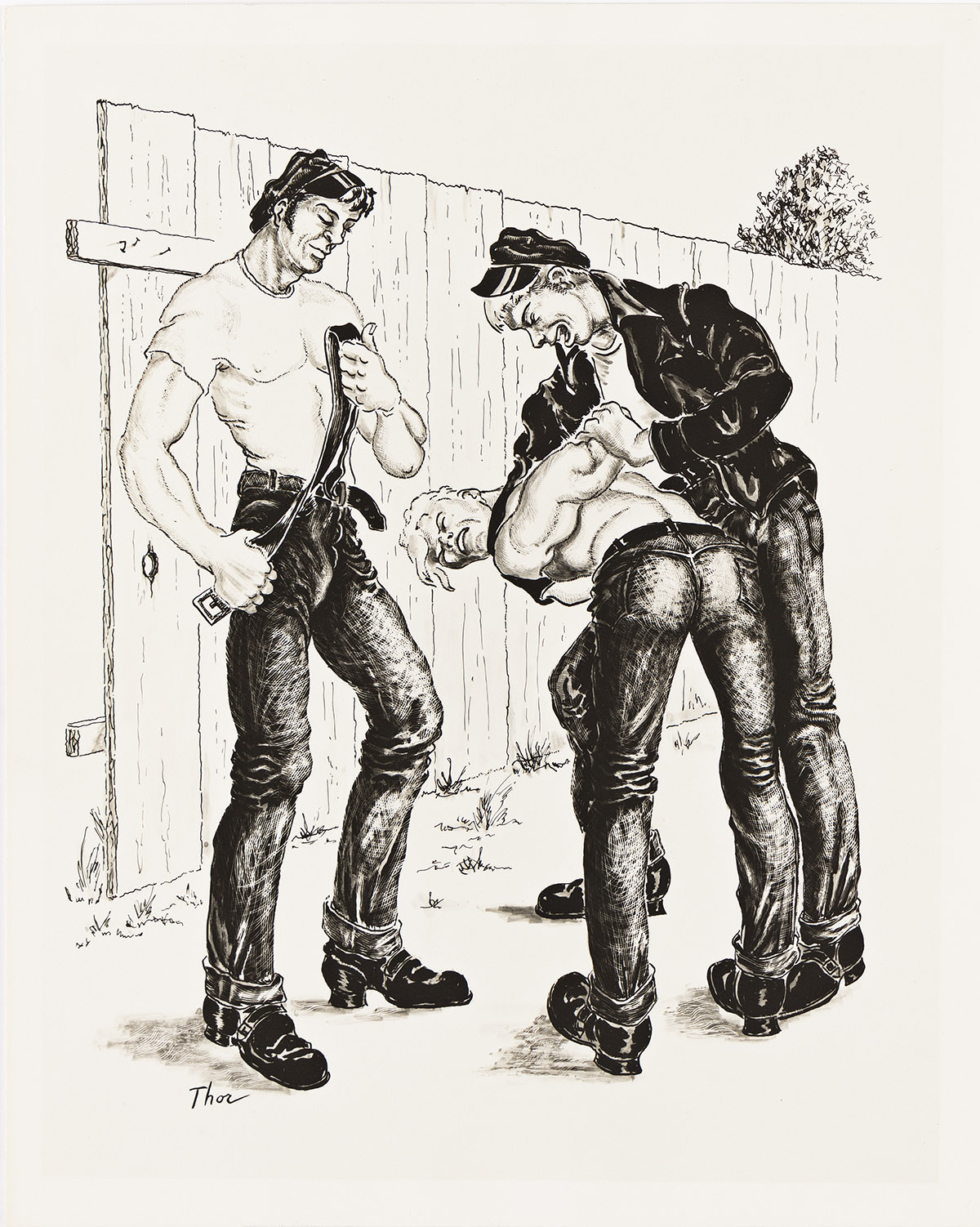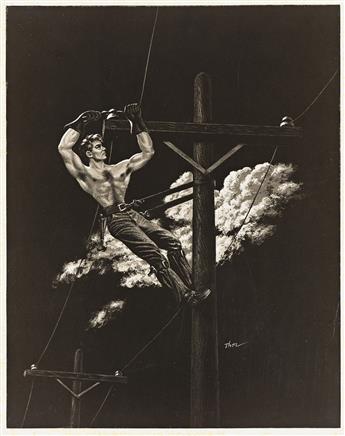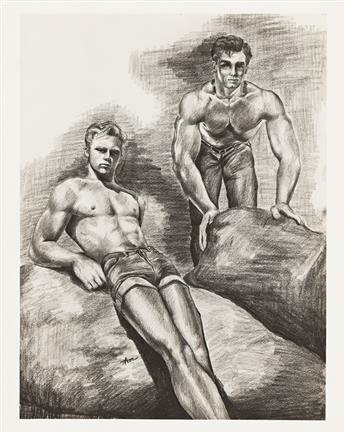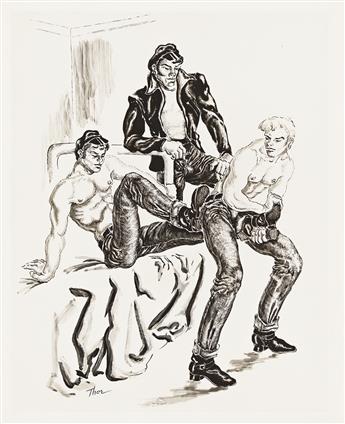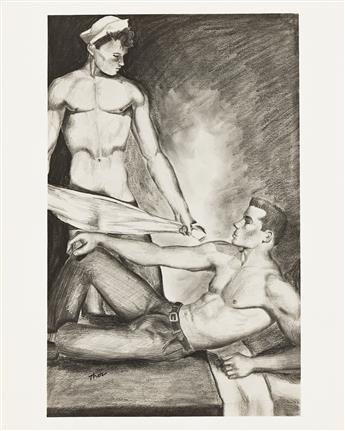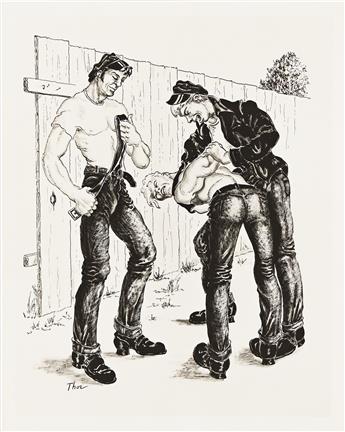Sale 2677 - Lot 140
Price Realized: $ 375
Price Realized: $ 488
?Final Price Realized includes Buyer’s Premium added to Hammer Price
Estimate: $ 300 - $ 500
THOR, SAMUEL STEWARD (1909 - 1993)
A Group of 5 Lithographs.
High Tension. Offset Lithograph. 254x203 mm; 10x8 inches, full margins. Signed in the plate and the artist stamp in ink, verso. Circa 1954.
Banter. Offset lithograph. 254x203 mm; 10x8 inches, full margins. Signed and titled in ink, verso. Circa 1954.
Three Untitled Lithographs. 254x203 mm; 10x8 inches, full margins. Siged in the plate. Circa 1954.
Executed under his pseudonym, "Thor", these five lithographs are from Samuel Steward.
Raised in a Protestant household fearing sexuality, Samuel Steward quickly realized he was attracted to other boys. Steward attended Ohio State University and graduated with a Ph.D. in English in the early 1930s. He taught at Ohio State during his last year there and, after graduation, moved around to teaching positions at Carroll College in Montana, Washington State University, and Loyola University in Chicago. He arrived at Loyola in 1937, but left academia believing it didn't afford him enough time for writing or his other passion, tattooing. He used the moniker Phil Sparrow in the early 1960s as a tattoo artist on Chicago's notorious South State Street. Steward worked closely with Alfred Kinsey on his landmark sex research. In 1964, he took his tattooing skills to California when he relocated to the East Bay Area. He was the tattoo artist of the Hells Angels Motorcycle club. Steward became an intimate friend of Gertrude Stein, Alice B. Toklas, and Thornton Wilder while maintaining a secret sex life from childhood on and documented these experiences in brilliantly vivid (and often very funny) detail.
Using the aliases Ward States, John McAndrews, and Donald Bishop, he was a prolific essayist in the first European gay magazines; as Phil Andros, he was the author of a series of popular pornographic gay novels during the 1960s and 1970s. He used drugs throughout his life and became addicted to barbiturates at the end of his life. He also struggled with his psychological health, suffering "through long periods of dark depression, loneliness and self-destructive behavior."
These works from "Thor" are scarce as the majority of his archive was donated to the Kinsey Institute.
Exhibition Hours
Exhibition Hours
Aliquam vulputate ornare congue. Vestibulum maximus, libero in placerat faucibus, risus nisl molestie massa, ut maximus metus lectus vel lorem.



